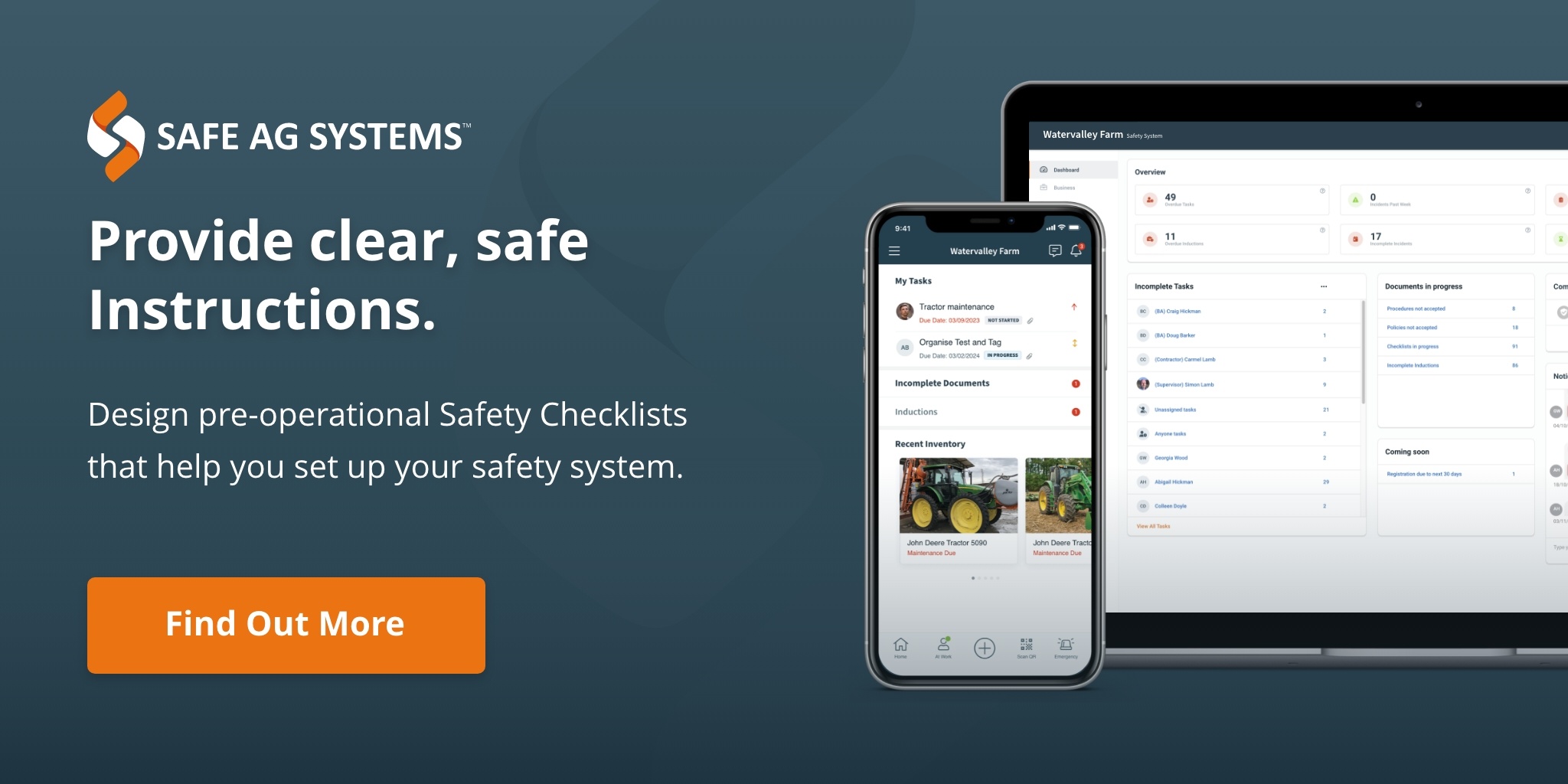Find out how long you need to keep records for your WHS with a FREE guide.
Have you ever felt like you're buried under a mountain of paperwork? It’s easy to accumulate so many files and wonder what they’re all for.
Record keeping can be tough for any business owner, but in agriculture and farming, maintaining accurate and current records can save you both time and hassle. Plus, it helps you meet your work health and safety obligations!
Risk Management
Effective record keeping serves as a valuable risk management resource for farming businesses. Make sure to have a complete and updated collection of safety policies. This will facilitate the induction of new team members, provide necessary training updates for current workers, and help you fulfill insurance obligations.
To effectively monitor certain workplace hazards, it's important to maintain records of your earlier risk reports. These records are not only helpful for your own reference but also play a key role in informing your workers.
Compliance
Accurate record-keeping in agriculture allows you to evaluate the health and safety performance of your business and make necessary adjustments. The amount of detail you need will depend on how large your operation is, but even a basic record of safety policies and training sessions is a solid foundation to build upon.
Records are important for ensuring that legal requirements are met, particularly in areas like environmental protection, food safety, and labor laws. They also contribute to quality assurance efforts and audits, such as Freshcare, Livestock Production Assurance (LPA), and Harmonised Australian Retailer Producer Scheme (HARPS).
Biosecurity
A strong farm biosecurity plan consists of numerous routine practices aimed at keeping infectious diseases, pests, and weeds away from your property. Keeping biosecurity records can assist in recognising potential hazards and can act as proof or a useful reference point.
Keep your visitor register updated. Document every piece of livestock or planting and propagation material that enters your property, noting the source, date, any treatments applied, certifications, and where they are stored.
Efficiency and Productivity
By maintaining records, you can discover areas that need improvement, including training opportunities or outdated checklists. They are also beneficial in emergencies, providing vital information for first aiders, health action plans, and emergency services.
Farmers can benefit from maintaining records, as they allow for better planning and optimisation of tasks, resource management, and increased productivity. For example, having detailed logs of equipment maintenance can support smarter decision-making and smoother operations.
It's also essential everyone in your workplace is aware of the records they need to keep, including where they're kept, so everyone can access them.
Some records to keep:
- Safety reporting procedures - any incidents and injuries, including near misses. This will help you determine actions to improve and prevent reoccurrences.
- Hazardous chemicals on site and an asbestos register if there is any at your workplace.
- Registration documents for machinery.
- Testing, maintenance and inspection details for specific types of equipment.
- Hazard identification, risk assessment and control processes you have in place at your workplace. This is particularly useful in showing you are actively keeping your workplace safe by being proactive.
- Training and inductions for workers and contractors
- Employment / worker records including general records, pay and hours worked, leave, superannuation and tax
Identify the necessary records for your unique operation and set up a system to keep them regularly updated. Utilise the many resources available to farm businesses, and don’t shy away from seeking professional guidance if you need it. Make it a habit to back up your files into a master document frequently, keeping it separate from your regular files. This will act as your safety net in case any issues arise with your farm records.
Available resources for Australia: Australian Taxation Office, Fair Work Australia, Safe Work Australia and your relevant office of business and consumer affairs.
Available resources for New Zealand: Inland Revenue, New Zealand Government, WorkSafe and Employment New Zealand.
Available resources for the United Kingdom: HM Revenue & Customs, Advisory, Conciliation and Arbitration Service (Acas), Health and Safety Executive (HSE), and your local consumer rights group.
Topics: Safety Management System
Disclaimer: Content on this website may be of relevance to users outside of Australia, but content links and examples are specific to Australia. Please check with your local authority for your country and industry requirements.












